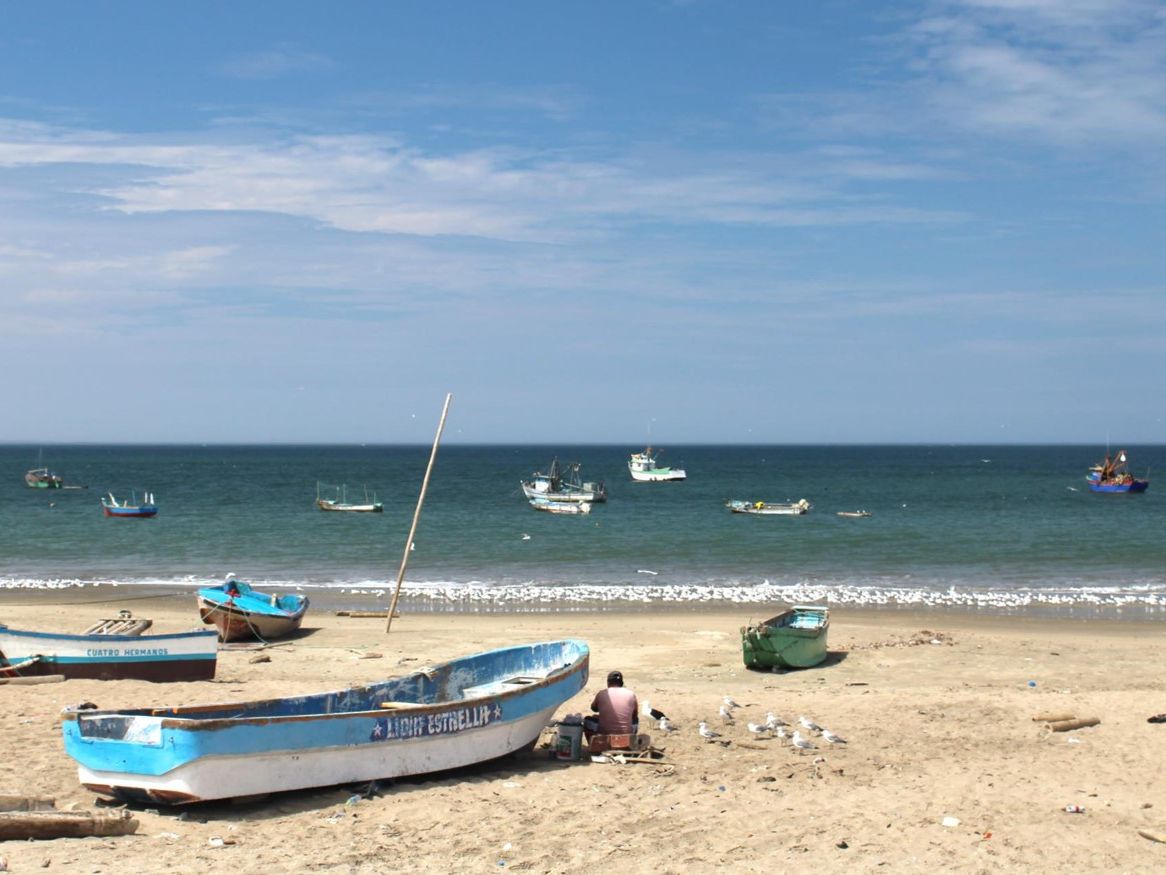Social-Ecological Tipping Points of the Northern Humboldt Current Upwelling System, Economic Repercussions and Governance Strategies (Humboldt-Tipping)
Projektmitarbeiter_innen
Michael Flitner (Projektleitung), Sara Doolitlle-Llanos (seit 2021), Maria Garteizgogeascoa, Lotta Kluger (bis 2020)
Laufzeit
03/2019 - 04/2023
Förderung
BMBF-FONA3: Kipppunkte, Dynamik und Wechselwirkungen von sozialen und ökologischen Systemen (BioTip)
Projektpartner
Leibniz Zentrum für Marine Tropenforschung (ZMT), Bremen
GEOMAR Helmholtz Centre for Ocean Research, Kiel
Universität Kiel
Universität Hamburg
Beschreibung
The Humboldt Current system with its upwelling area at the Pacific coast of South America is a highly productive ecosystem and a hotspot of global importance in terms of both capture fisheries and marine biodiversity. The system is subject to major seasonal, annual, decadal, and centenary fluctuations in the climate system, the dynamics of the ecosystem, as well as anthropogenic impacts of fishing and climate change. Effects are reflected in the intensity and location of the upwelling area and the extent of the oxygen minimum zone being characteristic for the system.
The project assesses the risk of decreases in marine ecosystem productivity as a potential tipping point for the interlinked ecological and social dimensions of the Northern Humboldt Upwelling System (HUS). The extreme variability in climate-related productivity of this upwelling system impacts local livelihoods and worldwide markets. One focus of the project is the pelagic, off-shore system supplying the industrial Peruvian anchoveta fishery and its regional and global repercussions through export to international markets. The second focus are coastal and insular (Galapagos) settings, where artisanal fisheries, aquaculture and ecotourism are key maritime activities for provision of livelihoods. With a consortium of biogeochemists, fisheries ecologists, ocean and ecosystem modelers, economists, social scientists and key stakeholders, both from Germany and Peru, we will work on understanding relations and feedbacks between ecological and social dynamics in the HUS. Based on an array of modelling efforts and tightly linked input from stakeholders, our group will explore possible adaptation schemes and governance options to reduce the risk of disruptive impacts on the regional socio-economic conditions and increase the resilience of coastal communities in Peru.
Projektleitung
Kontakt
Universität Bremen
Forschungszentrum Nachhaltigkeit
(SFG)
Enrique-Schmidt-Straße 7
28359 Bremen
Tel. +49 (0) 421 / 218-61844
Fax +49 (0) 421 / 218-9861844
E-Mail: flitnerprotect me ?!uni-bremenprotect me ?!.de


